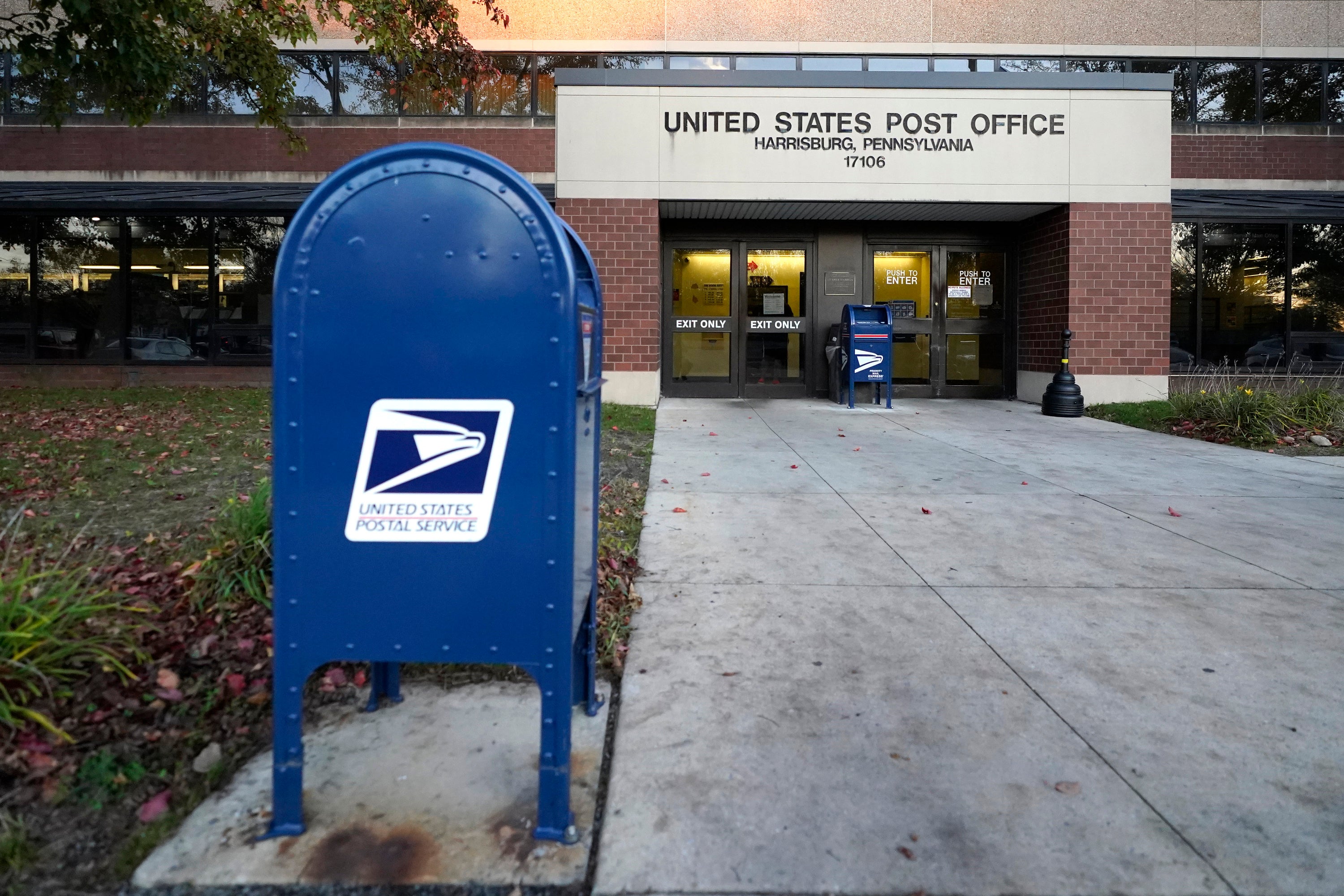After judge's order, Postal Service sweep finds 13 ballots
U.S. Postal Service inspectors found just 13 ballots during an Election Day sweep of processing centers ordered by a federal judge, all of them in Pennsylvania

Your support helps us to tell the story
From reproductive rights to climate change to Big Tech, The Independent is on the ground when the story is developing. Whether it's investigating the financials of Elon Musk's pro-Trump PAC or producing our latest documentary, 'The A Word', which shines a light on the American women fighting for reproductive rights, we know how important it is to parse out the facts from the messaging.
At such a critical moment in US history, we need reporters on the ground. Your donation allows us to keep sending journalists to speak to both sides of the story.
The Independent is trusted by Americans across the entire political spectrum. And unlike many other quality news outlets, we choose not to lock Americans out of our reporting and analysis with paywalls. We believe quality journalism should be available to everyone, paid for by those who can afford it.
Your support makes all the difference.U.S. Postal Service inspectors found just 13 ballots — all in Pennsylvania — during an Election Day sweep of mail processing centers ordered by a federal judge
The ballots were found in two separate mail processing facilities and were expedited for delivery to local election offices, according to court records filed Wednesday.
U.S. District Judge Emmet G. Sullivan in Washington, D.C., had given the Postal Service until Tuesday afternoon to search 27 facilities in several battleground areas for outstanding ballots and immediately deliver any ballots discovered to election offices.
The agency said it could not complete the judge s order under his timeframe but noted that it had already conducted morning checks at processing hubs and planned another sweep of 220 facilities handling election mail before polling places closed on Tuesday.
Justice Department attorneys representing the Postal Service said they could not meet the judge s order without disrupting the agency's own Election Day operations.
“Defendants therefore conducted inspections by postal inspectors and sweeps at the relevant plants yesterday, pursuant to this court’s order, but it was not possible for the Postal Inspectors to conduct sweeps of all relevant facilities by this court’s 3 p.m. deadline,” they wrote.
Sullivan expressed frustration that the agency did not meet his deadline, saying “someone might have a price to pay for that" and then ordered an additional sweep of mail processing facilities in Texas to be completed Wednesday afternoon.
Sullivan's orders came after postal data showed around 300,000 ballots in several states had not received scans confirming they were delivered. The agency strongly disputed the accuracy of the figure, saying it has expedited ballots by circumventing certain processing steps entirely, leaving them without the final delivery scan.
“When this occurs, by design, these ballots bypass certain processing operations and do not receive a final scan. Instead, they are expedited directly to the boards of elections,” Postal Service spokesman Dave Partenheimer said.
The number gained significant traction on social media at a time when the agency has become heavily politicized under Postmaster General Louis DeJoy, a major GOP donor.
DeJoy implemented a series of policy changes that delayed mail nationwide this summer and fueled worry about the agency's ability to handle the surge of mail-in ballots during the pandemic. At the same time, President Donald Trump baselessly attacked mail-in voting as fraudulent through his campaign.
In an interview, Mark Dimondstein, president of the American Postal Workers Union, said “we know of no big hold-up of ballots.”
“The rank-and-file postal workers, as we have during the pandemic, rose to the occasion to serve the people of this country,” he said.
___
Izaguirre reported from Lindenhurst, New York.
___
Associated Press coverage of voting rights receives support in part from Carnegie Corporation of New York. The AP is solely responsible for this content.